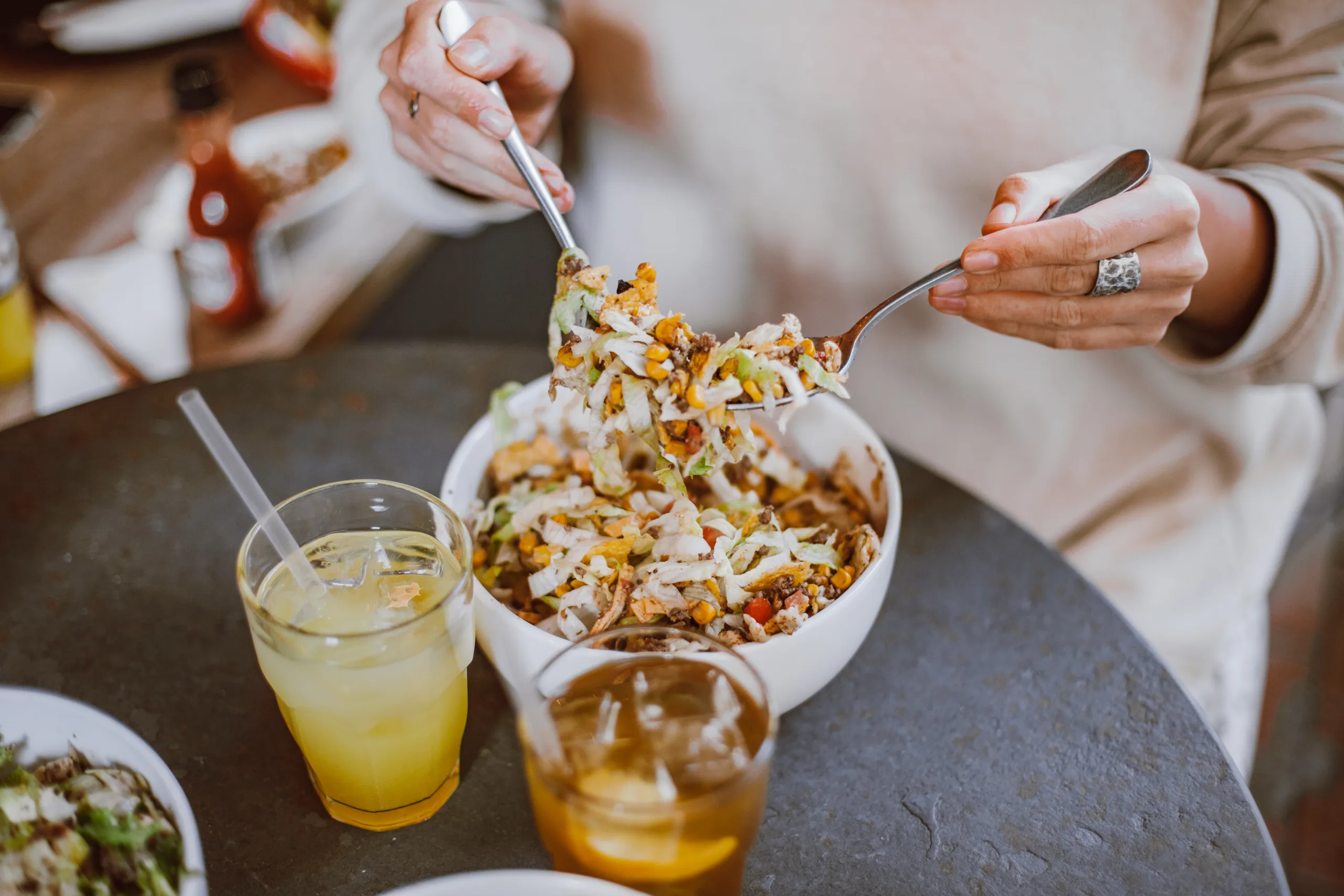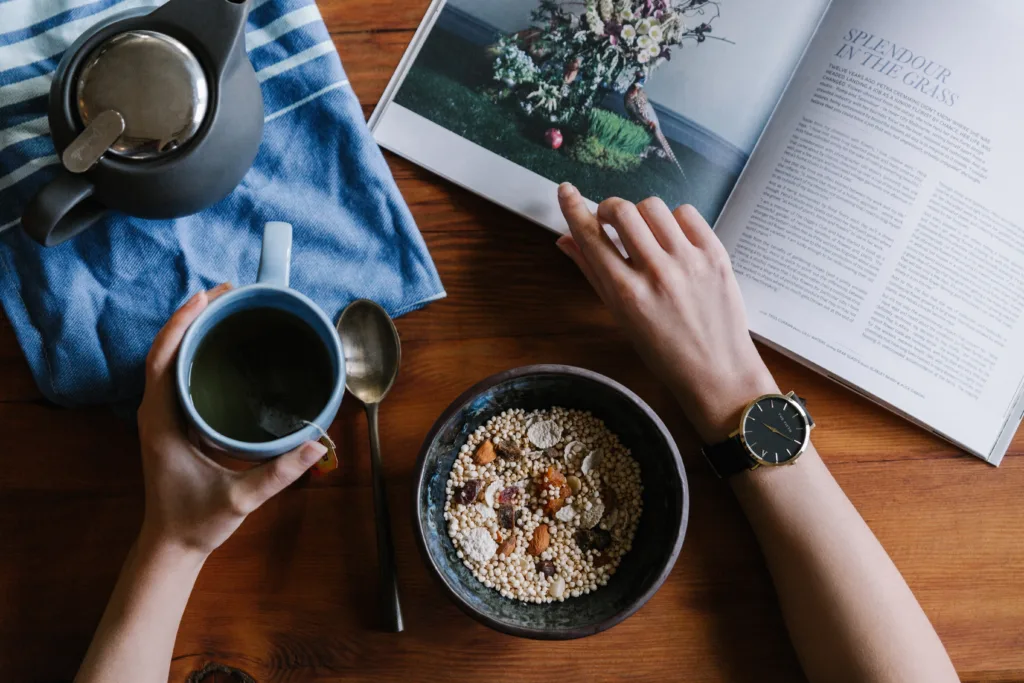Does drinking tea affect your low FODMAP diet? Do you need to avoid tea if you’re trying to improve your digestive health? If you’ve been wondering whether or not you can drink tea on a low FODMAP diet, this article is for you. We’ll look at which types of teas are safe to consume on a low FODMAP diet and which ones should be avoided. It’s important to understand the impact of drinking tea on your diet so that you can make informed decisions about what you’re consuming.
This article will provide an in-depth explanation of the low FODMAP diet and how it relates to drinking tea, as well as helpful tips and information about which types of teas are considered safe for those following the low FODMAP eating plan.
A Low FODMAP Diet is a diet that is designed to reduce the amount of certain short-chain carbohydrates, called FODMAPs, in the diet. This type of diet has been found to help alleviate the symptoms of irritable bowel syndrome (IBS) and other digestive disorders. It involves avoiding certain types of foods that are high in fermentable oligosaccharides, disaccharides, monosaccharides and polyols (FODMAPs) which can be difficult to digest and can cause bloating and other digestive discomfort.
What is IBS?
Irritable bowel syndrome (IBS) is a chronic digestive disorder that affects the large intestine. Symptoms of IBS can include abdominal pain, cramping, bloating, gas, constipation, and diarrhea. IBS is a common condition that affects 10-15% of people worldwide. It is more common in women than men and usually begins in early adulthood. While there is no cure for IBS, it can be managed with lifestyle changes and medications. Some of the treatments for IBS include dietary changes, stress management techniques, and medications to relieve symptoms such as diarrhea or constipation. In some cases, psychological counseling may also be beneficial. With proper management, people with IBS can lead healthy and active lives.
Can You Drink Tea on a Low FODMAP Diet?
Yes, you can drink tea on a low FODMAP diet. However, there are certain tips and considerations to keep in mind to make sure that your tea is low-FODMAP friendly. It’s important to read labels carefully and look for herbal teas that do not contain high-FODMAP ingredients, such as chicory root, fennel, or licorice root. Also, be aware that some black and green teas may have added flavorings or sweeteners that contain high FODMAP ingredients.
If you opt for plain black or green tea leaves without any added flavors or sweeteners, then these are generally considered to be low-FODMAP options. Some people also choose decaffeinated teas which can be a good choice if caffeine affects your digestive health. Additionally, many herbal teas can make great low-FODMAP options as they are often naturally caffeine-free and usually made with only one herb making it easier to determine if it’s suitable for a low FODMAP diet.
Click here to preview your posts with PRO themes ››
When drinking tea on a low FODMAP diet, try not to drink too much of it at once as this may trigger digestive symptoms. If you find certain types of tea trigger symptoms then it’s best to avoid them altogether or enjoy them in very small amounts only. Finally, if you experience any digestive discomfort after drinking tea then speak to your doctor about further testing to identify the cause.
What Kind of Tea is Low FODMAP Friendly?
Low FODMAP tea is a type of tea that has been specially formulated to be friendly to those who suffer from Irritable Bowel Syndrome (IBS) or other digestive issues. The ingredients in this type of tea are carefully chosen to ensure they will not aggravate symptoms and cause further discomfort. Low FODMAP teas typically contain herbs such as chamomile, ginger, fennel, lemon balm, marshmallow root, peppermint, and raspberry leaf which have been shown to help reduce digestive discomfort and bloating. There are also many types of teas that are naturally low in FODMAPs such as green tea, black tea, white tea, and oolong tea. Additionally, there are many speciality teas available on the market today that are specifically designed for those on the low FODMAP diet. These range from herbal teas to fruity tisanes and even flavoured green teas. Whatever your preferences may be there is sure to be a low FODMAP friendly tea out there for you!
When choosing a low FODMAP friendly tea it is important to take into account any additional ingredients or flavourings that have been added. Many herbal teas contain added sugar or honey which may aggravate IBS symptoms so always read the label carefully before purchasing. Additionally, you should consider the caffeine content as some people may find that too much caffeine can worsen their symptoms. Ultimately it is up to you to decide what works best for your body but it can be helpful to experiment with different varieties until you find one that suits your needs.
The Benefits of Drinking Tea on a Low FODMAP Diet
Drinking tea can be beneficial for those following a Low FODMAP diet. This diet is designed to reduce symptoms associated with irritable bowel syndrome and other digestive disorders. Tea is a great way to get your daily intake of fluids, while also providing antioxidants and other beneficial compounds. It can be consumed hot or cold, and there are many varieties to choose from. Here are some of the benefits of drinking tea on a Low FODMAP Diet:
First, tea is a great source of antioxidants. These compounds help protect cells from damage caused by free radicals, which can lead to inflammation and other health issues. Studies have shown that drinking green and black tea can reduce inflammation in the body, leading to improved overall health. Additionally, drinking tea may also help reduce cholesterol levels and improve gut health.
Second, tea is low in calories and carbohydrates, making it an ideal beverage for those on a Low FODMAP diet. This type of diet restricts certain carbohydrates which can cause digestive issues in some people. By drinking tea instead of other high-calorie beverages such as soda or juice, you can still get your daily fluids without consuming excess calories or carbs.
Click here to preview your posts with PRO themes ››
Finally, tea has been linked to improved mental clarity and focus. Green teas contain caffeine and L-theanine, two compounds that work together to improve alertness and focus without the crash associated with coffee or energy drinks. Additionally, the antioxidants found in green tea may help protect against cognitive decline associated with aging.
Overall, there are many benefits to drinking tea on a Low FODMAP diet. Tea is low in calories and carbohydrates while still providing important vitamins and minerals that are essential for good health. Additionally, it has been linked to improved mental clarity, focus and reduced inflammation. For these reasons, it is an excellent choice for those looking for an alternative beverage that still provides hydration throughout the day.

How to Make Low FODMAP Friendly Tea at Home
Making low FODMAP friendly tea is a great way to enjoy a tasty, healthful beverage without triggering gastro-intestinal (GI) discomfort. Low FODMAP friendly tea is suitable for those who are following the low FODMAP diet and are looking for a delicious way to stay hydrated. Here are some tips for making your own low FODMAP friendly tea at home.
The first thing you need to do is choose the right kind of tea. Most types of black tea, green tea, white tea, and herbal teas are suitable for the low FODMAP diet, but it is best to stick with varieties that have minimal ingredients. For example, avoid chai teas as they often contain high levels of fructose and other FODMAPs.
When it comes to preparing your tea, it’s important to use the right amount of water and steep it for the appropriate length of time. Generally speaking, two teaspoons of loose leaf or two teabags should be steeped in 8 ounces (1 cup) of boiling water for 5 minutes or until desired strength is reached.
Finally, when adding sweetener to your tea, it’s best to stay away from high-FODMAP sweeteners such as honey or agave nectar. Instead, opt for a low-FODMAP alternative such as stevia or xylitol. These natural sweeteners are suitable for the low FODMAP diet and have no impact on GI symptoms.
Making your own low FODMAP friendly tea at home can be an easy and enjoyable experience. By following these simple tips you can enjoy a delicious cup of tea without worrying about triggering any GI issues.
Common Low FODMAP Friendly Teas
Tea is a popular beverage, enjoyed around the world for centuries. It is also a great way to add flavor and variety to your diet without having to worry about high FODMAP ingredients. Low FODMAP friendly teas can be found in many grocery stores and online. Some of the most common low FODMAP friendly teas include green tea, chamomile tea, black tea, oolong tea, and peppermint tea.
Green tea is one of the most popular low FODMAP teas, as it is naturally caffeine free and has a mild flavor. Green tea contains antioxidants which can help reduce inflammation and protect against disease. It has been linked to improved digestion, weight loss, and better overall health.
Chamomile tea is another popular low FODMAP friendly choice. It contains compounds that can help with digestion and reduce inflammation in the body. Chamomile also has a mild flavor which makes it easy to enjoy without adding any sweeteners or other high FODMAP ingredients.
Click here to preview your posts with PRO themes ››
Black tea is another common low FODMAP option with a strong flavor that can be enjoyed plain or with added milk or cream for a heartier cup of tea. Black tea contains caffeine which can help boost energy levels and improve focus.
Oolong tea is a traditional Chinese beverage with a mild flavor that can be enjoyed plain or with added milk or cream for added richness. Oolong contains antioxidants which can help reduce inflammation and protect against disease.
Peppermint tea is another popular low FODMAP choice with an herbal taste that can be enjoyed plain or with added milk or cream for an extra creamy cup of peppermint goodness. Peppermint helps settle digestion so it’s perfect after meals when you’re feeling bloated or uncomfortable from eating high FODMAP foods.
No matter what type of low FODMAP friendly tea you choose, it’s important to remember that all types of teas should be consumed in moderation as too much caffeine can cause side effects such as headaches and insomnia if overconsumed.
Tips for Avoiding High FODMAP Teas
If you have a sensitivity to high FODMAP foods, then you may want to avoid certain types of tea. There are a few tips that you can follow to help ensure that your tea is low in FODMAPs.
First, stick to herbal teas, as these are naturally low in FODMAPs. Herbal teas such as chamomile and peppermint are generally safe for people with IBS, and they provide many health benefits. Additionally, look for teas that are certified organic and free from artificial flavours or sweeteners.
When selecting a tea, be sure to read the label carefully. Some teas may contain high-FODMAP ingredients such as honey or fructose, so be sure to avoid these if possible. Also be aware of flavoured teas, as they may contain high-FODMAP ingredients such as honey or agave nectar.
Finally, try to limit the amount of caffeine you consume from tea. Caffeine can aggravate IBS symptoms and some studies have shown that it can increase the risk of developing IBS symptoms in individuals who already suffer from it. If possible, opt for caffeine-free herbal teas instead.
By following these tips, you can ensure that your tea is low in FODMAPs and suitable for those with sensitive digestion systems. Enjoy your cup of tea without having to worry about upsetting your stomach!

Conclusion
Tea can be a great beverage to drink while on a Low FODMAP diet. As long as you stick to herbal and non-caffeinated teas, you can enjoy the benefits of tea without triggering digestive upset. The best way to determine if tea is triggering your symptoms is to track your intake and monitor any changes in digestion. Be sure to consult with your doctor or nutritionist if you have any questions about what foods or drinks may be suitable for your Low FODMAP diet. Tea is a great way to stay hydrated, energized, and relaxed during your Low FODMAP journey.
At the end of the day, it’s important to take care of yourself and listen to what your body needs. If you feel that drinking tea is beneficial for you then go ahead and enjoy it in moderation. With careful monitoring and a little bit of experimentation, you can find the right mix of teas that work with your Low FODMAP diet.

